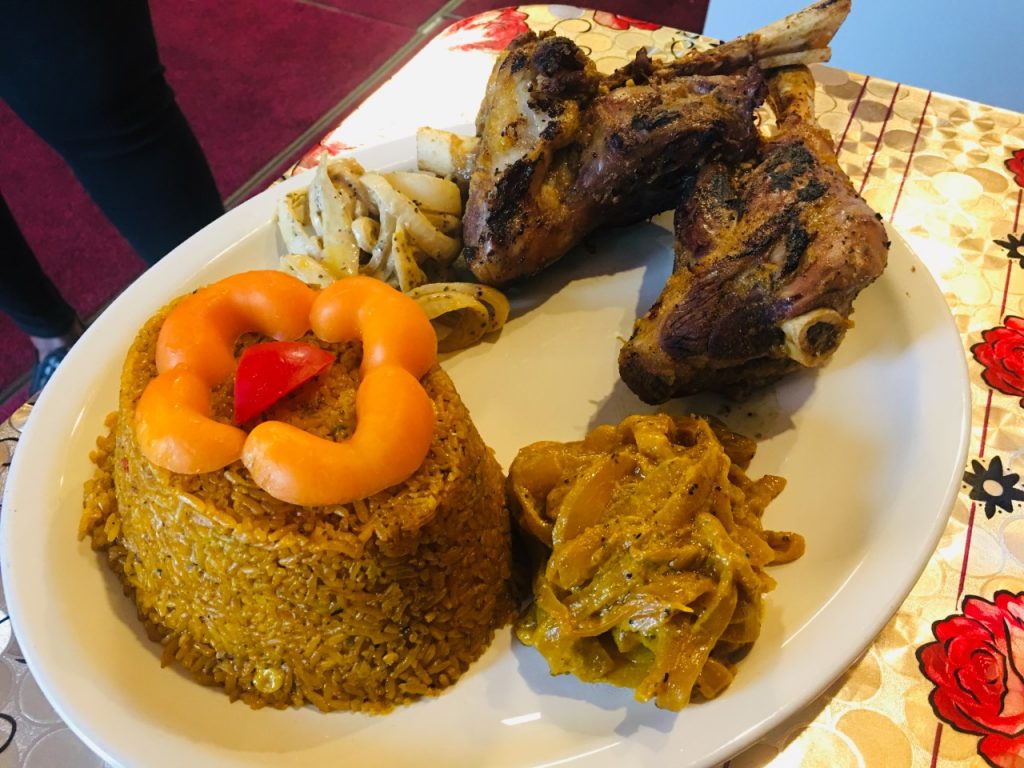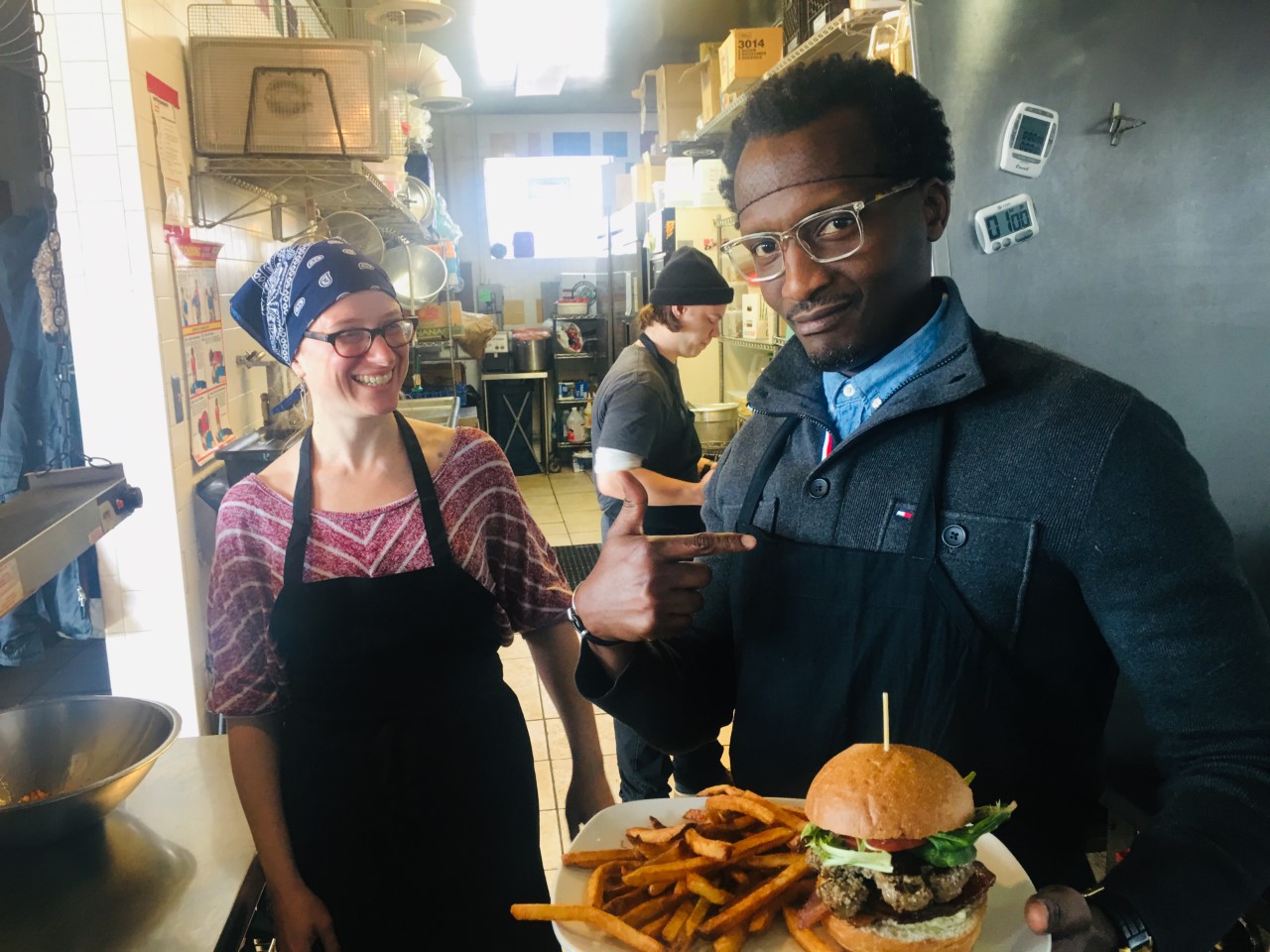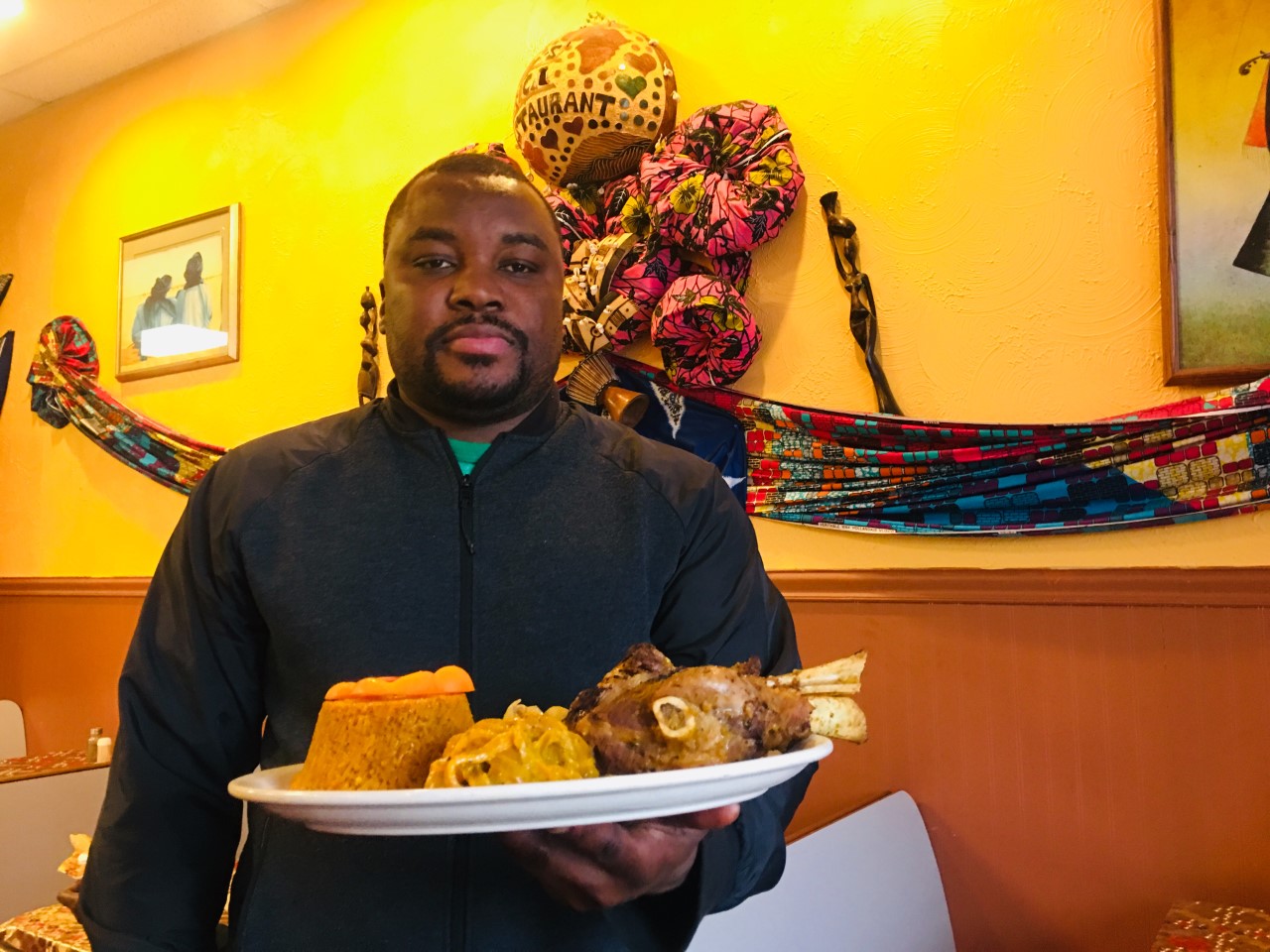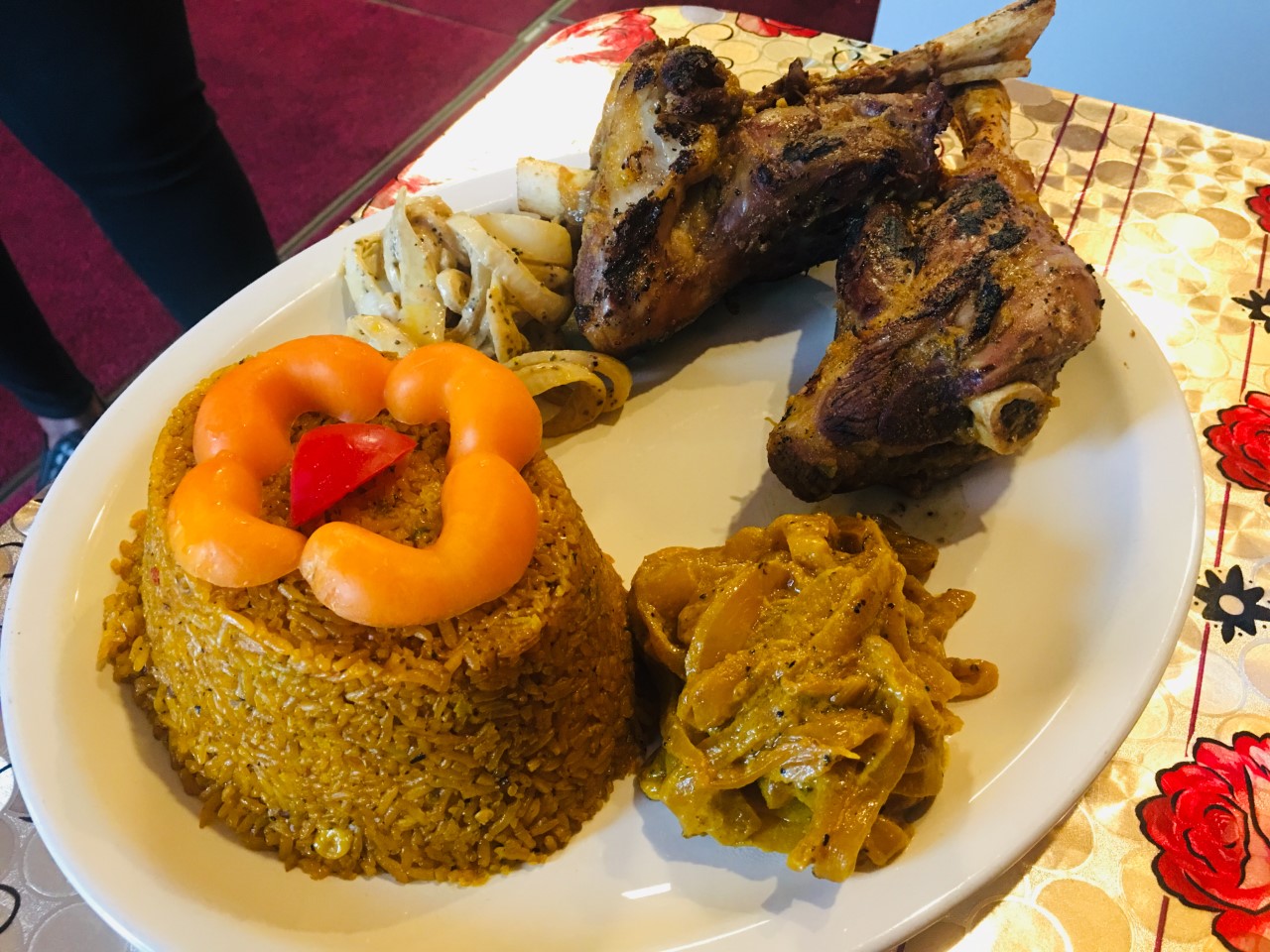Immigrants Behind Baobab Fare Bring East African Flavor to Detroit
Despite being a majority black city, Detroit has a dearth of African cuisine. This immigrant-owned restaurant is part of a community determined to change that.

This report was produced in collaboration with Feet in 2 Worlds, a journalism fellowship focused on the intersection of food and community. Listen to the full audio piece produced by Brittany Hutson by clicking on the player above or read the full story below.

On a slow Thursday afternoon at Brooklyn Street Local, owner Deveri Gifford gives Hamissi Mamba a lesson in filling an order.
“So a ticket comes in here,” Gifford says, picking up a recent order. “We have bacon, blue burger with fries on a white bun, medium rare.”
This weekly training exercise — past lessons have included inventory, front-of-house management, and organizing prep stations — are designed to prepare Mamba when he and wife Nadia Nijimbere open their new African restaurant, Baobab Fare, later this year.
The new restaurant, which is set to open in a storefront in a newly-renovated brick building in Detroit’s New Center neighborhood, is an answer to a void in the dining scene Mamba noticed when they arrived in the city a few years back: The dearth of African restaurants.
“I was like, how in a city with a black majority, you don’t have African restaurants, you know?” Mamba says.
He’s hoping that his fragrant rice pilau, Burundian yellow beans, and rich spinach and peanut stew will be their ticket toward realizing the American Dream, and at the same time help black Detroiters reconnect with their ancestral selves.

Continental cuisine
Continental African cuisine isn’t exactly a new food trend in Detroit. There are the Blue Nile Ethiopian restaurants in Ferndale and Ann Arbor, and the lively Kola Restaurant and Lounge features Afro-Caribbean inspired food and music.
But aside from a small pocket of west African immigrants on the far west side of the city, Detroit is not historically known for its African population. That’s changing. The options for traditional African cuisine are expanding, thanks in part to the growing numbers of refugees from several east African nations, including Sudan, Somalia, and Burundi, a result of local political and military unrest.
According to data from the Refugee Processing Center operated by the U.S. Department of State Bureau of Population, Refugees, and Migration, of the 5,039 refugees who were admitted to Michigan in 2016, 1,328 — about 26 percent — came from Africa.
Maty’s African Cuisine in Detroit Redford offers traditional Senegalese dishes. It’s one of the city’s newer African restaurants, offering fresh vegetables, all-halal meats and rice dishes. Maty’s is a popular hangout for Senegalese students, Syrian mothers picking up takeout orders and customers looking for a healthier dining alternative to fast food.
“This is what every black individual in this country needs to change their diet,” says Shariff Muhammad, a Detroit native, and Maty’s customer.

Writer and cook Tunde Wey saw a similar opportunity as Mamba when he began hosting Nigerian-inspired pop-up dining events in 2014. He found that the conversations that took place around the dinner table wound up being about more than just jollof rice, a signature dish of Nigerian cuisine.
“I felt that Nigerian food, the food that I grew up on, wasn’t pretentious and was also delicious and that it could be used as a vehicle to talk about more than just food. Now we could talk about different people and different experiences, talk about the validity of different people and different experiences,” says Wey.
Mamba sees a similar opportunity with Baobab Fare.
While West African cooking from countries including Senegal and Nigeria tends toward more meat-centric diets, Mamba says food in Burundi is more focused on vegetables, spices, and beans, and is heavily influenced by Middle Eastern culinary traditions.
“We are from east and everything is different,” says Mamba. “The cuisine is different, the language is different, the culture is different.”
Continental African cuisine in metro Detroit. Did we forget your favorite restaurant? Comment below.
Journey to America
As construction continues on their restaurant Mamba and Nijimbere have been hosting pop-ups around the city, building a following and educating diners about their culture and cuisine.
The couple’s path toward opening Baobab Fare started shortly after Mamba arrived in Detroit as a refugee from war-torn Burundi in 2015. His wife had moved to the city two years earlier while pregnant with twin daughters.
She settled at Freedom House, one of the largest shelters in the country specifically set up for asylum seekers with access to immigration attorneys, culturally sensitive mental health services and other support geared to the needs of refugees. The organization dates back to the 1980s when many Salvadorans fled to the United States at the height of civil war in the Central American country.
For Mamba and his family, support included entrepreneurship training with the incubator startup ProsperUS Detroit. Inspired by recipes he made with his mother and sister back home, the idea for Baobab Fare was born. In 2017, Mamba and Nijimbere won $50,000 through Hatch Detroit, a competition that awards new businesses with seed money to get started.
They began by hosting pop-up dinners and selling food at special events, including one at Brooklyn Street Local. The turnout was huge, with a line snaking out the front door and diners eager to get their first taste of East African cuisine in Detroit. On the all-halal menu: spiced rice pilau with beef and veggies, yellow beans, a savory African veggie stew, boiled and fried plantains and ginger-passion fruit juice.
The event introduced them to Gifford, who along with her husband opened Brooklyn Street Local about seven years ago after immigrating to the U.S from Toronto. Right away, the restaurateurs connected, with Gifford helping Mamba with the weekly restaurant operations tutorials. Meanwhile, Freedom House and other entrepreneurs helped Mamba and Nijimbere feel at home.
“When we started this project, everybody was very excited and happy to have something from Africa, especially something from East Africa,” Mamba says. “We don’t have a big community, but the small community we have is supporting us.”

Food, Borders and Belonging explores food in Detroit from the perspective of immigrants and journalists of color. Inspired by the Feet in 2 Worlds Food Journalism Fellowship at WDET, this series of stories looks at the role food plays in the transformation of city neighborhoods and in defining identities. Read more here.
